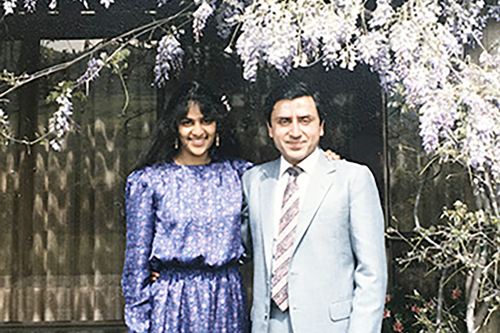The Earthquake Engineering Research Institute (EERI) is excited to release the 29th volume of Connections: The EERI Oral History Series, featuring Anil K. Chopra (M.EERI,1973), an expert structural engineering professor well known for his preeminent textbook Dynamics of Structures: Theory and Application to Earthquake Engineering, and his expertise in the seismic analysis and design of concrete dams.
The EERI Oral History featuring Anil K. Chopra is available free of charge in PDF format. This ongoing series publishes interviews with prominent figures in the fields associated with earthquake engineering and earthquake resilience to preserve the rich history of those who have shaped seismic design theory and practice.
Professor Chopra served on the faculty of the Department of Civil and Environmental Engineering at the University of California, Berkeley for 47 years, retiring in 2016. Following the footsteps of his mentors Ray Clough and Joe Penzien, he dedicated much of his career and research to the study of structural dynamics.
Notably, he chaired the structural analysis committee of the project producing the influential ATC-3, Tentative Provisions for the Development of Seismic Regulations for Buildings. In this Oral History, you will learn about this project and associated methodologies that fundamentally changed earthquake engineering.
His expertise in structural dynamics resulted in his being asked to write the EERI monograph on structural dynamics, Dynamics of Structures: A Primer, and later led to his very widely used university textbook, Dynamics of Structures: Theory and Application to Earthquake Engineering, now in its fifth edition.
Professor Chopra is known by his students both for kindness and his rigor. He’d ask them about their day, their families, and their lives. Then, he'd tell them to enroll in an English class and he’d be right there next to them. As an advisor and mentor, he had an “uncompromising sense of high-quality writing” marking up first drafts with a lot of red pen and demanding strong outlines of any paper. “First the skeleton, then the flesh,” he says. A lover of hiking, travel, and Urdu poetry, Professor Chopra has a life, career, and a story that begs to be shared.
EERI gratefully acknowledges production support provided by FEMA/U.S. Department of Homeland Security under grant EMW-2020-CA-00029, and the University of California, Berkeley, Department of Civil and Environmental Engineering.

